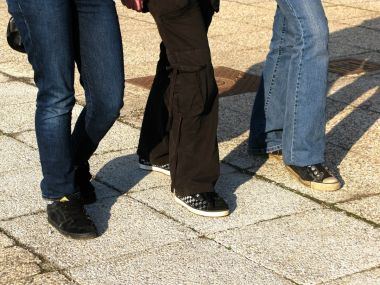Northern Ireland: One in 10 children have self-harmed

New figures from a study released today by the University of Glasgow and the Northern Ireland Department of Health conclude that one in 10 Northern Irish children have self-harmed.
Arianna Walker, executive director of Mercy Ministries UK, says the data suggests an entire generation children have not been taught how to deal with negative experiences.
The study, which sampled 3,500 schoolchildren, listed bullying along with drug, alcohol, and physical and sexual abuse as the primary risk factors. Northern Ireland also suffers from some of the highest rates of reported mental disorders in Europe.
The study pointed to social media as a potential influence and said that substantial problems were linked to Northern Ireland's legacy of conflict.
Prof Rory O'Connor, chair in health psychology at the University of Glasgow, told the BBC: "The emotional and psychological legacy of the Northern Ireland conflict, as well as the influence of new technologies, are associated with self-harm among adolescents in Northern Ireland - and need to be addressed."
The research did note that the rate of self-harm was lower than elsewhere in the UK, but researchers believe that because of the country's legacy of conflict, children are less willing to give personal information to hospitals, therefore masking the full extent of the problem.
Speaking to Christian Today, Ms Walker said she was saddened but not surprised by the statistics.
"This research shows that self-harming is a response to the pain and emotional turmoil of a generation of children who have not been taught how to respond when bad things happen to them and to those around them," she said.
"Self-harm, like eating disorders, addictions and depression are all symptoms of underlying issues- they are like branches on trees that grow in the soil of the circumstances of our lives."
Ms Walker said that too often, society's response was to "ignore" the plight of self-harmers or simply try to teach them to modify their behaviour, without addressing the underlying problems.
"We try to medicate the symptoms - simply cutting off those branches as it were without dealing with the roots," she said.
"A branch that is cut off will always grow back unless the roots that are feeding that branch are dealt with."
Ms Walker said an understanding of "the power of forgiveness" would enable people to "receive healing for the wounds of their past experiences".
She warned that the situation would not change without significant and intentional investment of resources.
"I believe until our society is prepared to invest time, money, and resources into therapeutic intervention and emotional healing, we will continue to see this cycle of destruction for generations to come," she said.











